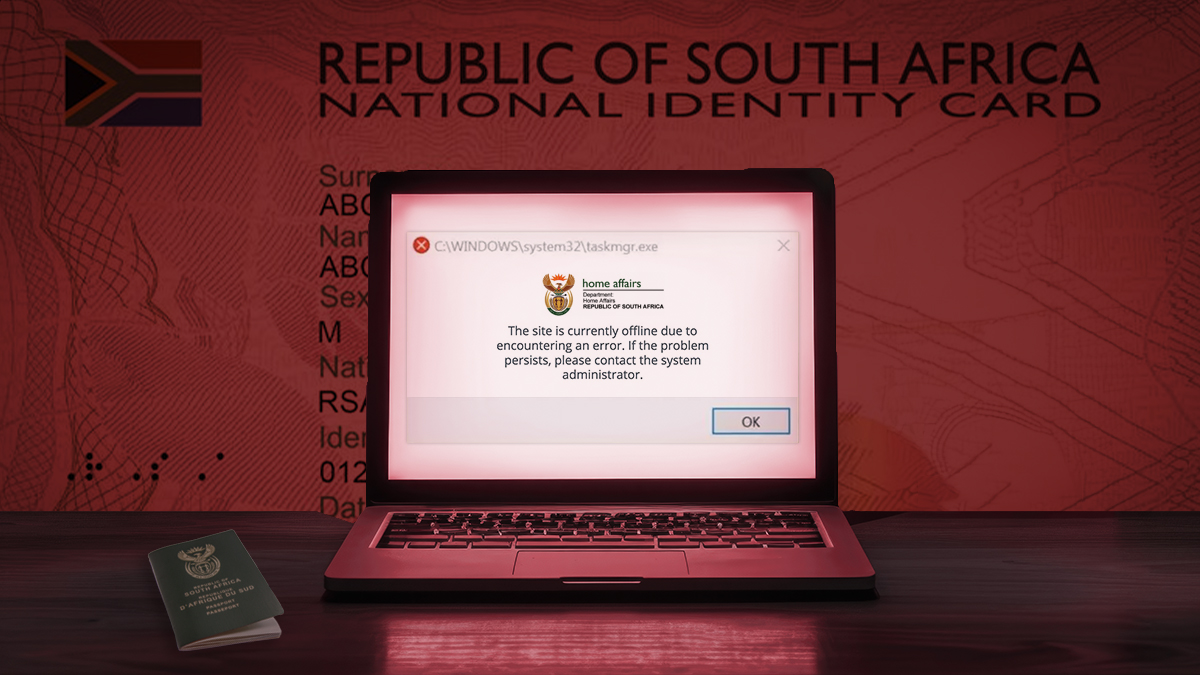One South African lost R6 million to an AI-powered banking scam

The South African Banking Risk Information Centre (Sabric) has warned of a surge in artificial intelligence (AI) driven scams in the banking sector, including deepfake videos, voice cloning, and AI-powered chatbots.
These scammers use AI to impersonate bank officials and offer lucrative investment deals. Sabric says these scams are actively targeting South Africans and one victim lost a whopping R6 million.
Another lost R100,000 through a similar scam.
“Imagine receiving a WhatsApp message that looks exactly like it’s from your bank,” it said.
“The logo is correct, the wording is professional, and the person on the other end claims to be a bank official offering a lucrative investment deal. They even send a convincing link to download an app.”
“But there’s just one problem — it’s all fake.”
Sabric says the use of AI is making it increasingly difficult for consumers to distinguish between legitimate and fraudulent communications.
“With deepfake videos, voice cloning, and AI-powered chatbots, criminals can now sound and look exactly like real bank representatives,” it said.
Sabric CEO Nischal Mewalall warned that these kinds of scams are tricking even the most vigilant people.
“AI-driven scams are now so advanced that even the most vigilant person can be fooled. Criminals can fake voices, emails, and even entire apps. The only way to stay safe is to verify before you trust,” he said.
They’re also creating fake banking apps, impersonating bank officials on social media, posting fake reviews and endorsements, and generating fake news articles to convince victims.
Sabric said an individual was misled into spending over R6 million in a scam under the pretence of trading on the Johannesburg Stock Exchange.
“The scam was orchestrated by individuals posing as bank employees,” it said.
“The suspects used a fake app and manipulated digital communication channels to gain the victim’s trust and facilitate the fraudulent transactions.”
Sabric also highlighted another case in which an individual lost over R100,000 to a scam through a fraudulent broker.
It explained that the scammers created a legitimate-looking website and used social engineering tactics to coerce the victim into making substantial investments with the fake broker.
“Despite assurances that they could withdraw their funds at any time, the victim lost all his money,” it added.
Sabric also highlighted a recent Standard Bank warning about a fraudulent WhatsApp group that promoted a fake investment app designed to steal sensitive data and money.
Dubbed SBG SI Trader, the app falsely claims connections with Standard Bank, SBG Securities, and other related platforms such as SBG Securities Online Share Trading.
It also mentions the Standard Bank’s Financial Sector Conduct Authority operating licence and on of its employees, David Hodnett.
“We would like to alert you that this information is fraudulent. Please remain vigilant to avoid falling victim to phishing scams, cybercrime, or unauthorised access by fraudsters,” Standard Bank said in an email sent to customers.
“We encourage you to also be cautious of any other social media, email, or phone (WhatsApp or SMS) communications requesting your personal information.”
Sabric listed several steps to take to ensure you and your bank account are protected:
- If it sounds too good to be true, it probably is.
- Be careful when offered promising “guaranteed” financial returns.
- Don’t download apps from links on WhatsApp, SMS, or email. Only use official app stores.
- Verify before you trust — if someone claims to be from your bank, hang up and call your bank’s official channels.
- Never share your PIN, OTP, or banking passwords, a bank will never ask for these details.
- Report any suspicious activity immediately.
“These scams are not just targeting a few people — they’re affecting everyday South Africans, draining life savings, and eroding trust in digital banking,” said Sabric.
































